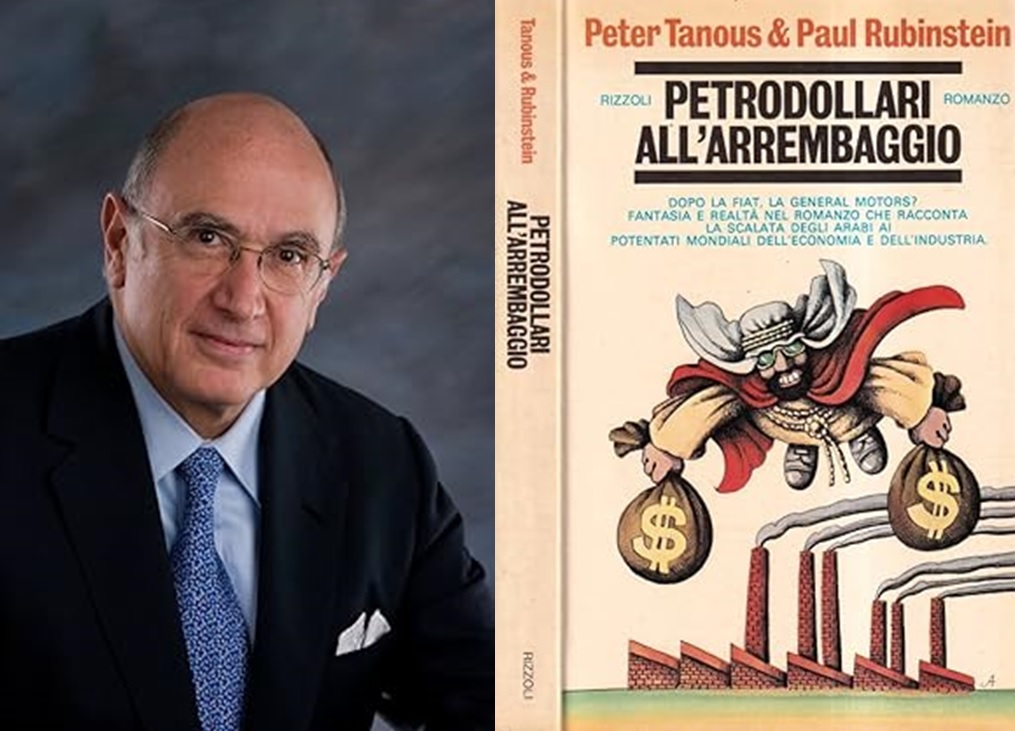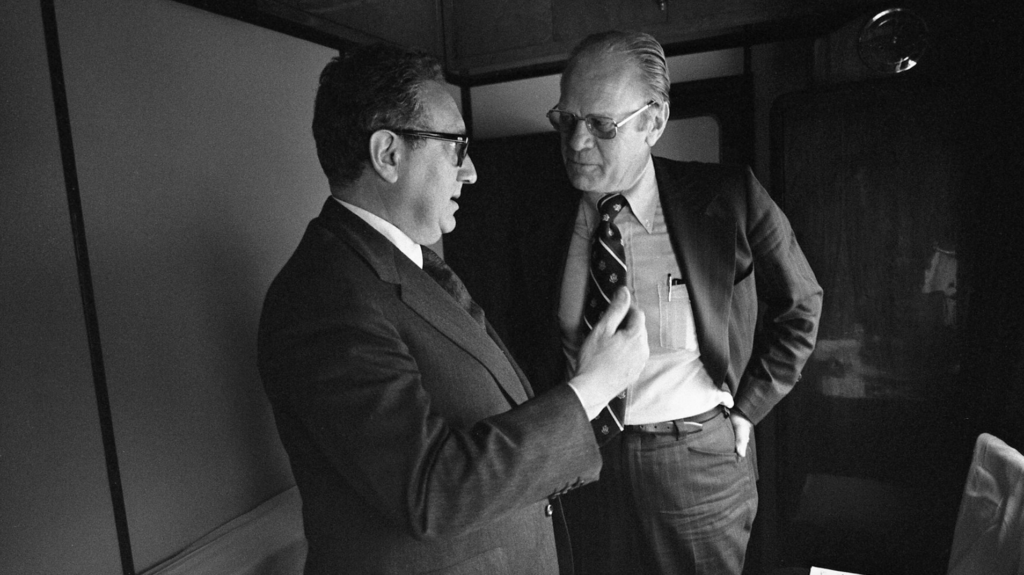
I was rummaging for English-language secondhand books the other day. I chanced upon a novel from 1975, eponymously titled The Petro-Dollar Takeover, authored by two real-world financial experts – Peter J. Tanous and Paul Rubinstein. But that’s not what got me to buy it.
By Emad Aysha
The unsung hero here is John Haddad, an American of Syrian-Lebanese extraction, given the titanic task of pulling the deal off and stymying opposition in multiple circles, some he couldn’t possibly anticipate and that could even endanger his life. I wouldn’t call the novel riveting, but it is a good, detailed and reasonably smooth read. The middle part gets you preoccupied too much with the intricacies of the wacky world of finance, but it is pretty exciting and nasty in places and beautifully written in others.
The novel’s also funny and sexy, in places. But most of all, the authors have an unmistakable taste for the high life and project their desires and anxieties onto the person of John Haddad – his pet peeves for not being a WASP and obsessive pursuit of the American dream.
But that shouldn’t detract from the way the Saudis, and then the Iranians, are portrayed. The Saudis are shown to be moderate in religion, drinking alcohol while abroad and only putting on Arabic clothes at home, while also being very scientific in the way they pick their man.
Given nepotism connections and word of mouth, this didn’t ring true to me. (In one key and contradictory scene, the news leaks about John Haddad precisely because of such backhanded connections). And why on earth were the Iranians, who were even bigger Westernizers and openly secular, portrayed in such a negative light?
It’s worse even than that. They’re portrayed as heavy-handed central planner types only concerned with decorum, in an almost whore-like fashion, with allusions to what today would be called ‘old’ Europe. How ironic that the female agent they sent after Haddad lost her family due to a construction/modernisation project.

OFF FOCUS: Peter Tanous in the flesh, astride his masterwork of financial intrigue and deliberate distraction.
The book’s propaganda – even if inadvertently. It reveals the thinking following the October War and the 1973-74 oil shock; both skirted over without much fanfare. I remembered, ages ago, having read academic articles and come across books arguing that Henry Kissinger was behind the oil price shock of 1973-74, in part in service to Iran, but that once Nixon was out of office, Kissinger began to lose ground to his rivals in the Ford administration—specifically the Treasury Secretary and, even more bizarrely, Donald Rumsfeld in Defence.
The Treasury seemed concerned with inflation and energy security, but Rumsfeld was thinking strategically. He was worried about the Shah’s military ambitions in the region. He was also banking more on Saudi Arabia as a swing producer, a more controllable ‘civilian’ power, unlike Iran.
So I bought the novel, a slice of history I couldn’t pass up. I’ve also always been interested in what happened to the Bretton Woods system, dismantled by Nixon and Kissinger, and from my MA days. In retrospect, it seems the financial establishment had a stake in this, and oil was instrumental in these machinations, too; see Nomi Prins's interview. (Such changing priorities almost took place in 1990, just before Iraq invaded Kuwait, since Saddam was a swing producer in his own right and strong enough militarily to stand up to the now revolutionary Iran).
Note that when they mention the dreaded SAVAK, talking about torture and summary execution and insane levels of secrecy and assassination and international blackmail, they neglect to mention either the CIA or the Israelis, the people who helped train and organise this horrendous secret police force. Let alone bring the Shah to power and overthrow the country’s burgeoning democracy.
After all, Muhammad Musaddaq's oil policies got him in trouble. How ironic that the US seems to have learned to acclimatise itself to even higher oil prices under the Saudis without taking similar moves to unseat the ruling Saudi monarchy. Hmmmm? There must be some internal financial angle in the US; people who benefitted from all that loose Saudi cash in the form of recycled petrodollars.
I’m not so sure how much Nixon and Kissinger themselves knew. Still, I’d wager the oil industry and the banking and securities sectors in the US ‘suggested’ things to them and ensured similar suggestions were made to their regional petro-allies. And that includes the Shah, of course, but something went wrong. His ambitions got the better of him, which no doubt benefitted the armaments industry in the US.
This is not a grandiose conspiracy where everything goes to plan, more like a four or five-dimensional chess game where a single false or unexpected move can mess everything up. You see this when Haddad’s parents are threatened by corrupt union bosses pensive about the Saudis taking over their cherished company. The SAVAK also gets wind of what’s happening and almost pulls off a financial coup.
Alas, the Saudis are portrayed as more reliable – and impressionable – allies. Can you believe it? I feel sorry for the Shah. Did the Americans (politics or business) sacrifice him in favour of Khomeini?

DIPLOMATIC BLUNDER: Henry Kissinger [left] up against Gerald Ford, a president who couldn't walk and talk at the same time.
We will have to wait and see, especially if a long-overdue sequel comes out. Peter J. Tanous is still alive—him and his very Lebanese-sounding surname!






